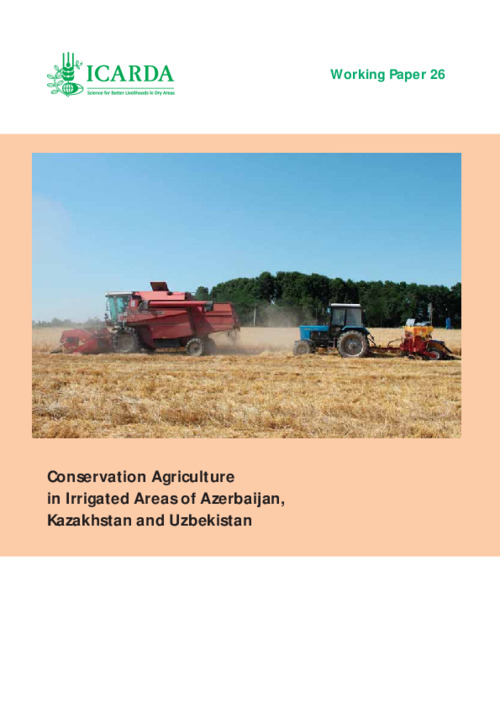Conservation Agriculture in Irrigated Areas of Azerbaijan, Kazakhstan and Uzbekistan
Abstract
This working paper has been prepared using results of the project as well as experiences of the co-authors. The following conclusions and recommendations resulted from this project: 1) No-till maize, sunflower, winter wheat in Azerbaijan and Kazakhstan, and not-till mung bean and winter wheat in Uzbekistan under irrigation provided yields comparable to those obtained through conventional and reduced tillage; 2) Permanent bed planting technologies proved to be suitable under irrigated conditions and provided similar or higher crop yields. The main benefit of bed plating is water saving. Improving water use efficiency is an important contribution towards achieving food security in this region; 3) The economic assessment of technologies was based both in quantitative and qualitative methods of analysis. Among those technologies, the application of no-till practices and bed planting of winter wheat, new crop rotation options with inclusion of legumes in cropping systems, etc. were found to be useful for increasing farmers’ income and improving their livelihoods; 4) Local no-till drill development is absolutely essential for up-scaling of conservation agriculture practices in the region and manufacturing of no-till drill should be organized. It is recommended that a project proposal on the development of no-till drill in the region be formulated and implemented; 5) The availability of affordable and appropriate CA equipment for the specific farming conditions is critical; 6) Both types of crop diversification as single crops and double cropping systems will be essential to improve the sustainability of farming and income generation at the local, regional and national levels.
The most important recommendation stemming from this project was that the Governments of the Central Asian countries need to be assisted in the formulation and implementation of national strategies for the adoption and promotion of CA

